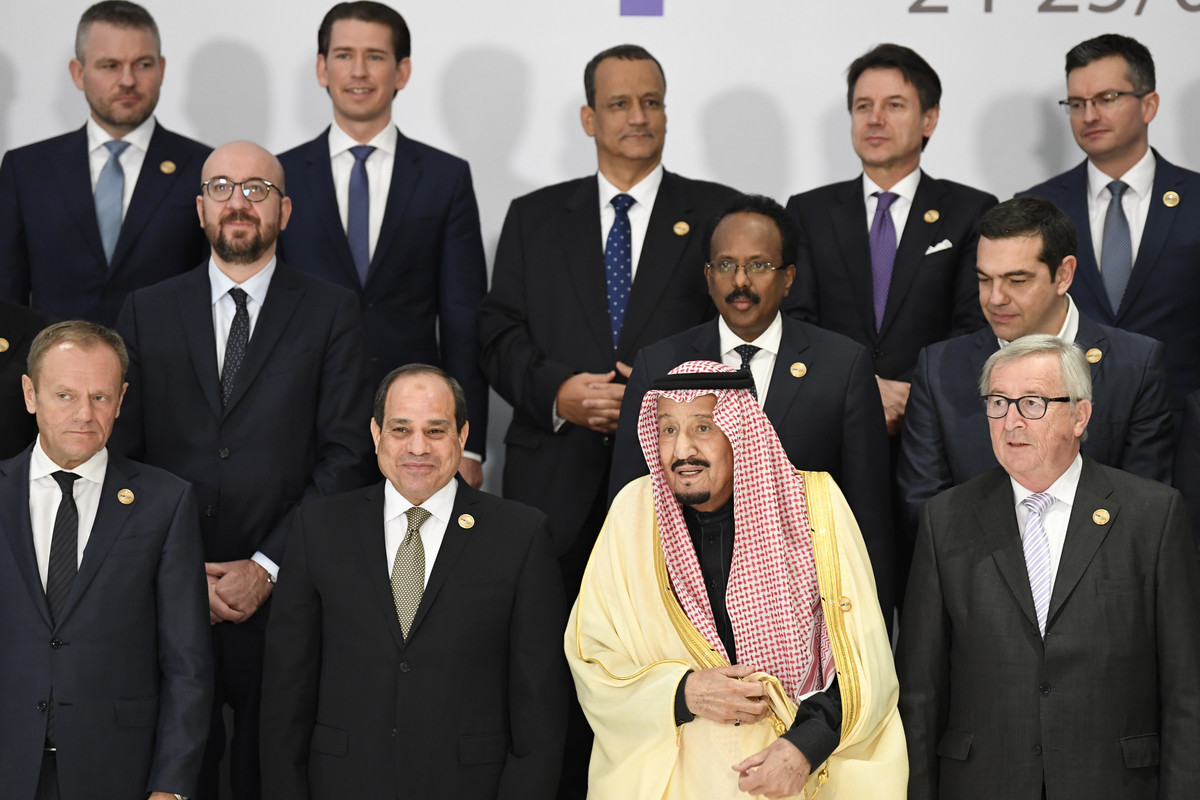Messages of the EU-Arab Summit

The two-day EU-Arab Summit in Sharm El-Sheikh, Egypt, saw the largest attendance from both sides at presidential level. The leaders discussed common challenges, primarily terrorism, illegal immigration, refugees, and economic and trade cooperation.
Despite the traditional diplomatic statement issued by the summit and its short duration, it conveyed important and influential messages concerning the regional and international situation, as well as the future of cooperation and strategic relations between several parties that attended. The mere convening of the summit, after three years of trying, is in itself a great achievement for Arab and Egyptian diplomacy.
This reflects a change in EU countries’ stance toward Egypt. It appears that they have overcome their reservations that followed the revolution of June 30, 2013, and have recognized Egypt’s central role as the meeting point for the Arab and European civilizations. A senior EU official described the attendance of the leaders of 25 out of 28 member states as a clear indication of the great importance and value that Europe attached to this summit.
It was held a few days after two terrorist attacks that killed 18 Egyptian soldiers. This is a very important message confirming that the Egyptian state is capable of hosting and securing this gathering of leaders, and that the attacks were no more than the last dance of extremism in the country after comprehensive and successful military operations. The message of facing terrorism is not only Egyptian, but also Arab and European.
The Arab League and the EU focused in their discussions on counterterrorism efforts amid continued concerns about extremists coming to the Middle East from Europe, and on the security of both regions in light of the military collapse of terrorist organizations in Syria and Iraq, and major attempts to eliminate them in Libya. The summit will likely remap Arab-European relations in a manner that allows each side to learn more about the other.
King Salman’s participation reflects the importance of Saudi-Egyptian relations and the two countries’ regional and international status.
Abdellatif El-Menawy
The attendance of Saudi King Salman conveys the consensus of the Saudi and Egyptian visions on regional crises and issues, most notably the fight against terrorism and its financing; the conflicts in Syria, Iraq and Libya; and the Palestinian-Israeli peace process.
King Salman’s participation reflects the importance of Saudi-Egyptian relations and the two countries’ regional and international status. It puts new emphasis on the continuation of visits between the leaders of the two brotherly countries, with four visits conducted last year. This serves the interests of both peoples.
This is clear from King Salman’s assurances that his visit to Egypt is a continuation of distinguished bilateral relations and cooperation, as well as the two countries’ shared destiny. He expressed hope that his visit will further bolster the strong bilateral ties on official and popular levels.
UK Prime Minister Theresa May’s attendance was a positive step, amid increasing British demands to lift the ban on flights between the UK and Sharm El-Sheikh that was imposed by London in November 2015. Labour MP Stephen Timms, who chairs the Egyptian-British Parliamentary Group, said May should take the opportunity to inspect the dramatically tightened security arrangements at the town’s airport.
The summit was also an opportunity to increase cooperation between the EU and the Arab League. The former has been contributing to financing the crisis room at the latter’s headquarters, with €4.4 million ($4.99 million) since 2012. It is also likely that trade between the EU and Arab states, which reached €315.9 billion in 2017, will increase. Arab exports to the EU rose by 20 percent to €121.6 billion in 2017, compared to €101.2 billion in 2016.
However, the EU cannot enhance its political role in the Arab world against US wishes. This does not diminish the summit’s importance, but highlights its logical political limits. The EU’s agenda is limited to specific Arab issues. In an official statement, the EU said it is focused on a number of common issues and challenges, most importantly multilateralism, investment, trade, immigration, security and the “situation in the region.” Note the flexibility of that term.
• Abdellatif El-Menawy is a critically acclaimed multimedia journalist, writer and columnist who has covered war zones and conflicts worldwide.
Twitter: @ALMenawy









































